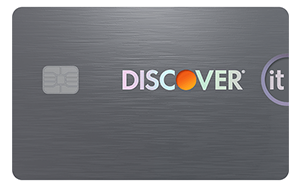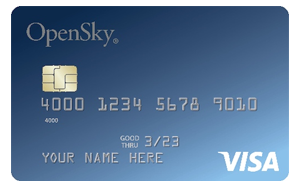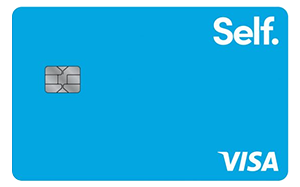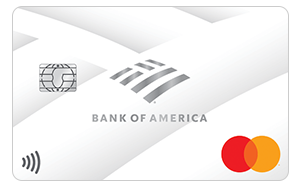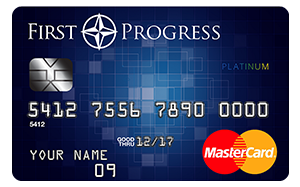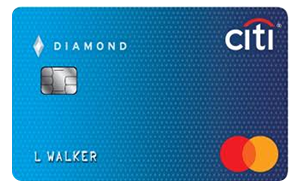If you’re thinking about getting a new credit account in the next few months—especially if it’s a particularly large loan, such as a mortgage—it makes sense if you want to give your credit score a boost before applying. When it comes to the terms you’ll be eligible for (e.g., your interest rate), the higher your score, the better.
If you’re hoping to raise your credit score by a full 100 points in just 30 to 45 days, you’ll have a difficult road ahead of you, but it might be possible. Read on to learn what your chances are and the best strategies if you want to achieve this ambitious goal.
Table of Contents
Is it possible to raise your credit score by 100 points?
Yes, you can raise your credit score by 100 points as long as it isn’t already over 750. The highest credit score you can get in the main scoring models (FICO and VantageScore) is 850.
However, if your credit score is already relatively high, there’s no significant benefit to raising it that much. You can usually enjoy all the benefits of good credit (like the lowest possible interest rates and highest credit limits) with a credit score of 760 or higher. 1 Raising your credit score even further might feel satisfying, but it won’t actually improve your life that much.
On the other hand, if you have a bad credit score (either because you’re just starting out or because something caused your credit to drop), raising your score by 100 points is well worth doing.
Is it possible to raise your score by 100 points in 30 days?
It’s sometimes possible to boost your score by 100 points in a very short period (30 to 45 days). However, it’s quite difficult; that’s a very large increase in a relatively short time. We’ve listed several strategies that you can try below, but be prepared for a longer journey if you want that 100-point increase.
Fastest ways to boost your credit score 100 points (in just 30–45 days)
If you’re looking for ways to increase your credit score as soon as possible, there are a few credit score hacks you can try. These are the fastest ways to raise your credit score. It generally isn’t possible to raise your credit score 100 points overnight, but with a little luck, you could see results in just 30–45 days.
1. Dispute errors on your credit reports
You have the right to submit a credit dispute asking the credit bureaus to remove items that shouldn’t be in your credit report. Credit disputes take no more than 30–45 days to process, and they can completely erase derogatory marks from your credit report, potentially raising your credit score by 100 points or more.
To dispute an item in your credit history, you’ll need to first obtain copies of your credit report. You can do this for free at AnnualCreditReport.com. Next, you’ll need to send a dispute letter to the credit bureau that provided your report (Experian, Equifax, and TransUnion).
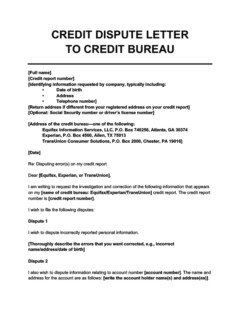
Credit Dispute Letter to a Credit Bureau
Use this credit dispute letter template to file a dispute directly with one of the credit bureaus. Mistakes in your personal information (e.g., an incorrect address), as well as credit accounts that you don't recognize, should usually be disputed with the bureaus. Often they're the result of the bureau confusing you for someone else.
Credit reporting errors are more common than you might think. A 2013 study found that one in five Americans had an error on at least one of their credit reports, and one in 20 of those gained 25 points or more by filing a credit dispute—some even gained upwards of 100 points. 2
2. Become an authorized user
If you’re an authorized user on someone else’s credit card, it means you’re allowed to use it. It also means that the primary cardholder’s account history may be added to your credit report.
If the main accountholder has good credit, then being added to their account will improve your credit score by lowering your credit utilization rate and strengthening your payment history. 3
Credit Building as an Authorized User
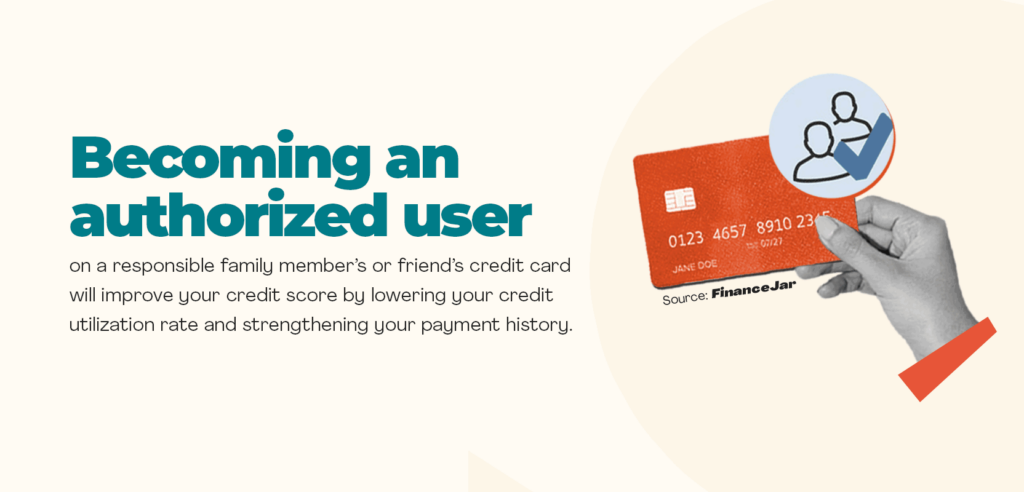
3. Pay off collections
If you want to repair your credit, you need to deal with any negative items that are on your credit reports. This includes overdue debts and collection accounts.
Collection accounts significantly damage your credit score because they impact your payment history—the most important credit scoring factor. They can shave up to 125 points off your credit score. 4
Thankfully, paying off collections can quickly increase your credit score by completely reversing their negative effects in newer credit scoring models (from FICO 9 and VantageScore 3.0 onwards). This means that in some cases, paying your collections can almost immediately increase your credit score by over 100 points.
4. Lower your credit utilization rate
Your credit utilization rate is the proportion of your credit limit you’re currently using on revolving credit accounts (like credit cards and store cards). It’s one of the most important factors contributing to your credit score, and lowering your credit utilization will lead to a rapid increase in your credit score.
There are two main ways to lower your credit utilization rate:
- Spend less on credit cards: Keeping your balances low is an important part of maintaining good credit health. A good rule of thumb is to use less than 30% of your available credit, but using even less is ideal.
- Increase your credit card limit: Getting your credit card company to increase your credit card limit will lead to an automatic reduction in your credit utilization rate, as long as you don’t start spending more.
People with perfect FICO scores have an average debt-to-credit ratio of only 4.1%. 5 Reducing your credit card balances by 25% could cause an increase of 50+ points in your FICO score, and if you have a very high balances (70–100%), paying them down could result in an increase of 100 points. 6
You’ll see your credit score update as soon as your credit card company reports your new balance to the credit bureaus.
Use Less Credit to Boost Your Credit Score

Long-term strategies to get (and maintain) a 100-point score increase
To see real, lasting improvement in your credit score, you need a long-term outlook. Here are strategies that’ll help you build your credit and maintain a high score in the long run.
Realistically, none of these strategies in isolation will boost your score by 100 points, but if you pursue all of them, you can easily see that kind of increase after a year or two.
1. Pay your bills on time
Just as late payments can seriously hurt your credit, a series of on-time payments across all of your credit accounts can do wonders for improving your credit score and strengthening your credit history.
Plan your budget carefully so that you know you’ll have enough money to pay your bills on time every month. You can also use autopay or set up payment reminders.
If you do end up missing a payment due date, then bring your account current as soon as possible. Sending in the full amount a little late is better than not sending in any money at all.
2. Get a secured credit card
If your credit score is low due to a poor payment history, you might be able to gain 100 points (or more) by consistently making on-time payments on a credit card. However, if your score is too low, most creditors will be unwilling to offer you a credit card in the first place.
Fortunately, even if you have poor credit, you’ll still be able to get a secured credit card by paying a refundable credit card deposit that your creditor will use as collateral. Because of this extra security, lenders can relax their requirements so that borrowers with limited, poor, or damaged credit are eligible.
| Credit Card | Best For | Credit Score | Annual Fee | Welcome Bonus | |
|---|---|---|---|---|---|
| Secured Overall | 300–669 | $0 | Cashback Match | ||
| No Credit Check | 300–669 | $35 | |||
| Beginners | 300–669 | $25 | |||
| No Annual Fee | 300–669 | $0 | |||
| Bad Credit | 300–669 | $49 | |||
| Rebuilding Credit | 300–669 | $0 | |||
When you choose a secured credit card, make sure that the lender will report your credit activity to all three major credit bureaus. This will give you the opportunity to improve your credit score by establishing a history of on-time payments. 7
Be careful about using credit cards to boost your credit score
Getting lots of credit cards isn’t usually a good way to build credit fast. While credit cards can be great credit-building tools, opening too many accounts in a short period can damage your score by triggering hard inquiries and lowering the length of your credit history.
3. Take out a credit-builder loan
If you have a limited credit history or most of the information in your credit file is negative, taking out a credit-builder loan could be a good solution for raising your credit score and building up your credit history.
A credit-builder loan is unlike most other types of loans because you don’t receive the money upfront. Instead, you agree to pay your lender a certain amount each month, and they give you the full amount you’ve paid at the end of the loan period.
The main way that credit-builder loans increase your credit score is by building up your payment history. These loans are specifically designed for building or rebuilding credit, and your lender will report all your payments to the credit bureaus.
If you have little to no experience with loans, then a credit-builder loan will also boost your credit by improving your credit mix, which is the diversity of different types of credit accounts you have.
Credit-Builder Loans Are a Low-Risk Way to Improve Your Credit History

4. Get credit for paying rent and utility bills
In general, the credit bureaus only hear about your rent and utility bill payments when you miss them. However, if there are bills that you usually pay on time, you can capitalize on these in one of two ways:
- Experian Boost: This free service allows you to build credit by paying utilities and other monthly bills. When you sign up, your payments are added to your Experian credit report (but not your other two credit reports).
- Rent-reporting services: There are other third-party services that you can sign up for to start building credit from paying your rent on time. These services usually cost money, but they can potentially raise your credit score by 100 points or more, depending on how much rental history is added to your credit reports.
Boost your credit for FREE with the bills you're already paying

Boost your credit for FREE with the bills you're already paying
- Experian Credit Report and FICO® Score updated every 30 days on sign in
- Instantly increase your credit scores for FREE with Experian Boost™
- Daily Experian credit monitoring and alerts
How long does it take to increase your credit score by 100 points?
The time it will take to increase your credit score by 100 points depends on several factors, including the issues that lowered your score in the first place.
As mentioned, if your score is being brought down by one or two big, obvious issues (such as a high utilization rate or credit reporting errors), then you can fix your credit and boost it by 100 points in a matter of 30–45 days.
However, if you’re unsuccessful with these measures (or they’re not applicable to your situation), you’ll have to wait for longer. Negative marks stay on your credit report for 7 years (10 for some bankruptcies), which puts an upper limit on how long it will take to rebuild your credit.
In practice, if you follow the long-term strategies outlined above, you may see an increase of 100 points much sooner than that, potentially in a year or two.
How often are credit scores updated?
The time that it will take to improve your credit score is also affected by how frequently it’s updated. Your credit score is updated any time a data-furnishing company (like your creditor) provides new information to the credit bureaus.
This means that your score could take a while to improve after you take measures to raise it (like paying your debts) if your creditors don’t report it immediately. Creditors will usually report your statement balance to the credit bureaus on a monthly basis, although the credit reporting timeline can vary from company to company. 8
If you want to know the exact date that your creditors report your balances to the credit bureaus, try calling them to ask or chatting with them online. While they might be unwilling to give you specifics, there’s a chance they’ll be able to give you a rough idea.
How to check your credit score
Make sure to monitor the improvements in your credit score to see how close you are to achieving your goal of a 100-point credit score increase. You can easily check your credit score using one of these approaches:
- Check your credit card statement or loan statement
- Purchase your FICO score directly at myFICO.com
- Sign up for credit-monitoring services with Experian, Equifax, or TransUnion
- Talk to a government-approved credit counselor
Bear in mind that you have different credit scores. For consistency and accurate score monitoring, it’s best to check the same credit score type (FICO or VantageScore). Checking your credit scores and reports regularly will help you throughout your credit journey.
Takeaway: Raising your credit score by 100 points takes time
- There are several immediate steps you can take to jumpstart your credit building. However, to see a larger score improvement, you need to manage your credit in a disciplined way for months or years.
- Pay off your outstanding balances, lower your credit utilization rate, and make sure to pay your bills on time every month to improve your score.
- Be wary of strategies that seem like quick fixes—such as opening more credit cards or spreading your debt across a lot of cards—that could ultimately do more harm than good.
- How long it will take to improve your credit score ultimately depends on your credit history.

